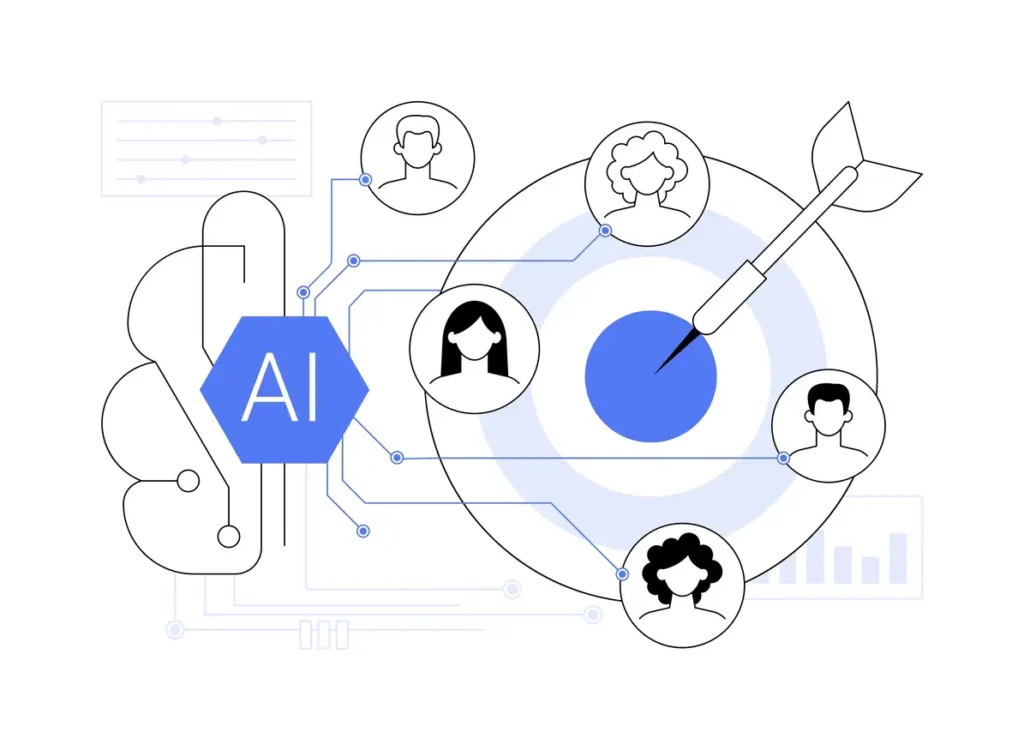Reinvent Your Company: Just How AI Automation Is Changing B2B Operations
AI automation is reshaping B2B operations in considerable ways. Companies are embracing this technology to simplify process and improve effectiveness. As jobs become automated, companies can concentrate on strategic development as opposed to mundane processes. The ramifications of these modifications are extensive, affecting everything from consumer interactions to provide chain administration. Comprehending this change is important, as the future of service depend upon the efficient assimilation of AI right into day-to-day procedures. What lies in advance in this evolving landscape?
Recognizing AI Automation in B2B Context
As businesses increasingly look for effectiveness, understanding AI automation within the B2B context becomes crucial. AI automation refers to the application of artificial intelligence innovations to enhance and improve company processes. In B2B environments, this can show up in numerous kinds, such as automating information access, optimizing supply chain logistics, or enhancing supply monitoring. Organizations leveraging AI automation can reduce operational prices, decrease human error, and increase efficiency. In addition, AI tools can evaluate huge quantities of data to supply workable understandings, enabling notified decision-making. The assimilation of AI into B2B operations not only transforms traditional operations however additionally fosters dexterity and scalability, enabling organizations to adjust to market changes swiftly and effectively. Welcoming this technology is necessary for remaining affordable in today's electronic landscape.
Enhancing Client Experience Via AI
How can AI transform customer communications in the B2B industry? AI improves consumer experience by offering individualized, prompt, and efficient solution. Virtual assistants and smart chatbots can manage questions 24/7, making certain customers get immediate responses. Predictive analytics make it possible for businesses to prepare for customer demands, customizing offerings appropriately. AI-driven platforms can assess consumer data, enabling for targeted advertising approaches and improved engagement. Additionally, view analysis devices analyze customer responses, aiding organizations fine-tune their solutions. By automating regular tasks, AI liberates human resources to focus on high-value communications, cultivating more powerful partnerships. The integration of AI not only streamlines interaction but also builds trust and commitment, inevitably raising the overall customer experience in the competitive B2B landscape.
Improving Supply Chain Administration With AI
AI plays a necessary duty in optimizing supply chain management via predictive analytics and automated inventory control (Minarik AI). By leveraging predictive analytics, businesses can prepare for need fluctuations and change their operations appropriately. Automated stock systems even more boost effectiveness by guaranteeing supply degrees are preserved, lowering waste and enhancing overall productivity

Anticipating Analytics Benefits
While several companies deal with difficulties in taking care of complicated supply chains, anticipating analytics offers a transformative option by leveraging huge amounts of data to anticipate fads and enhance procedures. By evaluating historical data along with real-time inputs, predictive analytics makes it possible for companies to identify patterns and anticipate future needs. This insight permits more educated decision-making, boosting efficiency and reducing costs. In addition, businesses can proactively address potential disturbances by predicting supply chain bottlenecks and changing approaches appropriately. The combination of predictive analytics not just boosts supply administration yet also fosters more powerful relationships with suppliers and clients through prompt responses to market changes. Inevitably, the adoption of anticipating analytics empowers companies to remain affordable in an increasingly vibrant company atmosphere.
Automated Inventory Control
As companies significantly rely upon predictive analytics to maximize supply chain procedures, automated stock control becomes an effective ally in this initiative. By leveraging AI-driven innovations, companies can improve precision in inventory monitoring, lower stockouts, and lessen excess supply. Automated systems examine real-time information, permitting services to predict need changes and readjust stock degrees as necessary. This not only enhances order gratification however also boosts capital management by decreasing holding costs. Additionally, AI can identify patterns in purchasing habits, enabling more informed decision-making concerning distributor connections and purchase methods. Ultimately, automated inventory control not just enhances functional efficiency yet likewise improves consumer contentment by guaranteeing product schedule, solidifying its role as a vital part in modern supply chain monitoring.
Data-Driven Decision Making Powered by AI
In today's competitive landscape, companies increasingly rely upon data-driven decision-making to improve operational performance and tactical planning. Man-made knowledge plays a critical role in this transformation by analyzing large quantities of data swiftly and accurately. AI formulas identify patterns, trends, and anomalies that human analysts could ignore, enabling organizations to make informed choices based on real-time understandings - Minarik AI. This capacity enables firms to predict market changes, enhance source allocation, and customize their offerings to client requirements. Additionally, AI-driven analytics facilitate threat assessment and administration, ensuring that companies can navigate unpredictabilities properly. By leveraging these innovative tools, organizations not only boost their decision-making processes however also get an affordable advantage in their respective markets, promoting development and innovation
Automating Repetitive Tasks to Boost Productivity
Simplifying recurring jobs via automation considerably improves productivity within B2B operations. By applying AI-driven remedies, companies can get rid of mundane activities such as data access, billing handling, and report generation. This shift enables staff members to focus on higher-value tasks, promoting creative thinking and critical thinking. Automating these lengthy processes not only decreases human error yet likewise speeds up process efficiency. Additionally, companies can attain regular outcomes and boosted accuracy, which is crucial in maintaining client complete satisfaction. The assimilation of automation devices enables companies to assign sources much more efficiently, ensuring that groups can respond swiftly to market needs. Inevitably, embracing AI for repetitive tasks is a tactical action that transforms functional capacities and drives general service growth.
Incorporating AI With Existing Business Processes
When integrating AI with existing business procedures, several organizations face challenges. These obstacles often come from an absence of recognizing relating to exactly how AI can match existing workflows. Effective combination requires a thorough analysis of existing procedures to determine locations where AI can add value. Organizations should additionally ensure that their teams are geared up with the needed abilities to leverage AI tools efficiently - AI Automation For B2B. Additionally, smooth integration depends upon the compatibility of AI innovations with legacy systems. Firms often discover it helpful to take on a phased strategy, piloting AI applications in certain departments prior to a more comprehensive rollout. This method enables modifications based upon preliminary comments, Growth Systems For B2B guaranteeing smoother shifts and taking full advantage of the prospective benefits of AI automation in enhancing efficiency and efficiency
Future Patterns in AI Automation for B2B Business
As B2B business want to the future, enhanced information analytics is established to play a crucial function in driving decision-making processes. Smart procedure automation will certainly additionally become an essential fad, boosting and improving operations performance. These advancements promise to improve just how businesses run, eventually leading to even more responsive and dexterous companies.
Enhanced Information Analytics
While services progressively count on data-driven choices, the duty of AI in improving information analytics is ending up being extra necessary in B2B operations. AI technologies promote the collection and evaluation of vast datasets, allowing firms to reveal useful insights that drive strategic planning. Anticipating analytics powered by AI permits companies to anticipate market trends and client behavior with better precision. Furthermore, equipment understanding algorithms enhance data analysis, recognizing patterns that human analysts might forget. This causes even more educated decision-making and optimized source allowance. As B2B business continue to embrace AI-driven analytics, they can anticipate better operational performance, enhanced customer experiences, and a competitive side on the market. The future of data analytics in B2B hinges on integrating innovative AI capacities.
Intelligent Refine Automation
Smart Process Automation (IPA) is poised to transform B2B procedures by effortlessly integrating AI innovations with traditional business processes. This cutting-edge method incorporates robotic procedure automation (RPA) with advanced AI capabilities, enabling organizations to boost performance and precision. Firms can automate repetitive tasks, such as information entry and billing processing, permitting staff members to concentrate on strategic campaigns. IPA also leverages artificial intelligence and all-natural language handling, boosting decision-making via real-time data evaluation. As companies significantly take on IPA, they can expect significant price reductions and boosted customer experiences. Future fads suggest a growing dependence on IPA for scalability and adaptability, positioning companies to thrive in an ever-evolving industry. Accepting IPA will certainly be necessary for keeping competitiveness in the electronic age.
Regularly Asked Concerns
What Industries Benefit The Majority Of From AI Automation in B2B Procedures?

Just How Can Small Companies Execute AI Automation Efficiently?
Small companies can execute AI automation properly by determining repeated tasks, choosing proper devices, incorporating services slowly, training staff, and constantly assessing performance to maximize processes, ensuring a smooth changeover and optimizing efficiency.
What Are the Expenses Connected With AI Automation Execution?
The prices linked with AI automation implementation normally include software program acquisition, framework upgrades, training staff, ongoing upkeep, and prospective consultation charges. These expenses can vary substantially based upon the range and intricacy of the automation solutions chosen.
How Do I Determine ROI From AI Automation Initiatives?
To gauge ROI from AI automation campaigns, one must examine expense financial savings, efficiency enhancements, and profits development against implementation expenses. Tracking key efficiency indications in time supplies useful insights into performance and overall return on investment.
What Skills Are Needed to Manage AI Automation Projects?
Reliable administration of AI automation jobs requires skills in task administration, information evaluation, programming, and understanding AI modern technologies. Additionally, solid communication, analytical abilities, and flexibility are important for navigating the intricacies of such campaigns.
As businesses progressively look for efficiency, comprehending AI automation within the B2B context ends up being crucial. The combination of AI into B2B operations not only transforms conventional process however also promotes agility and scalability, permitting companies to adapt to market adjustments quickly and successfully. While companies significantly depend on data-driven choices, the duty of AI in improving information analytics is ending up being more important in B2B procedures - AI Automation For B2B. Intelligent Refine Automation (IPA) is positioned to reinvent B2B procedures by perfectly incorporating AI innovations with traditional company procedures. Reliable monitoring of AI automation jobs calls for abilities in task administration, information evaluation, shows, and recognizing AI innovations